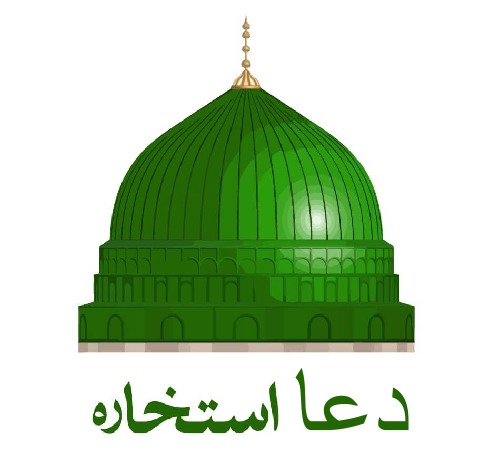Islam Makhachev: Muslim Athlete, UFC Champion Faith Journey
The Rise of Islam Makhachev: Blending Faith in Sports with UFC Dominance Islam Makhachev stands as a towering figure in mixed martial arts (MMA), embodying the fusion of faith in sports and relentless dedication as a muslim athlete and UFC champion. Hailing from Dagestan, Russia, Makhachev’s journey from a remote village to global stardom showcases how his Islamic faith shapes his life, both inside and outside the octagon. His story inspires millions, proving that spiritual discipline can elevate athletic excellence. The Quran underscores perseverance, a trait Makhachev lives by: “Indeed, those who have believed and done righteous deeds—the Most Merciful will appoint for them affection” (Surah Maryam, 19:96). As a muslim fighter, Makhachev’s commitment to Islam guides his training, fights, and humility. This biography explores his early life, UFC career, and devout practices, addressing whether he is a practicing Muslim, debunking myths, and offering insights for aspiring muslim athletes. Is Islam Makhachev a Practicing Muslim? His Faith in Action Islam Makhachev is undeniably a practicing Muslim, with his faith in sports deeply integrated into his identity as a muslim fighter. Raised in Dagestan, a region known for its strong Islamic traditions, Makhachev has consistently highlighted his faith as a cornerstone of his success. In interviews, he describes Islam as his guiding force, stating, “My faith keeps me grounded” (UFC Embedded, 2022). He adheres to Islamic practices like daily prayers (salah), fasting during Ramadan, and abstaining from alcohol, aligning with the Prophet’s (peace be upon him) teachings: “Leave that which makes you doubt for that which does not” (Sahih al-Bukhari, 52). As a muslim athlete, Makhachev observes Ramadan even during grueling fight camps, viewing fasting as a mental and spiritual strengthener. After winning the UFC Lightweight Championship at UFC 280 in 2022, he performed sajdah (prostration) and thanked Allah, reflecting Surah Ad-Duha (93:7): “Did He not find you lost and guide you?” His public displays of faith, from reciting duas to maintaining modesty, cement his role as a muslim fighter inspiring others. Early Life: Roots in Dagestan’s Islamic Culture Born on October 27, 1991, in Makhachkala, Dagestan, Islam Ramazanovich Makhachev grew up in a devout Lak Muslim family. His father, a tomato farmer and driver, and his mother, a café owner, instilled Islamic values early on. In the village of Burshi, Makhachev was immersed in Dagestan’s culture, where wrestling and faith intertwine. At seven, he trained in taekwondo, but his passion for combat sambo and wrestling took root under coach Abdulmanap Nurmagomedov, father of Khabib Nurmagomedov. Makhachev’s childhood friend, Khabib, introduced him to MMA. Training at Eagles MMA gym, he balanced Islamic practices like salah with mat sessions, embodying faith in sports. By his teens, he was a four-time Russian National Sambo Champion and World Combat Sambo Champion, crediting Islamic discipline for his focus (Sahih Muslim, 2814, on perseverance). Despite Dagestan’s economic and political challenges, Makhachev’s faith provided resilience, shaping his path to professional MMA in 2010. Islam Makhachev’s UFC Journey: From Prospect to Champion Makhachev’s UFC career began in 2015, marking his ascent to UFC champion. After a 12-0 record in regional promotions like M-1 Global, he debuted at UFC 187, submitting Leo Kuntz. A 2016 suspension for meldonium (later cleared as unintentional) tested his resolve, but he leaned on prayer, reflecting Surah Ash-Sharh (94:6): “Indeed, with hardship comes ease.” His comeback showcased dominance, with a 2019 Fight of the Night win over Arman Tsarukyan. In 2022, Makhachev claimed the UFC Lightweight Championship at UFC 280, submitting Charles Oliveira in the second round. He defended his title against Alexander Volkanovski (UFC 294, 2023) with a first-round knockout and Dustin Poirier (UFC 302, 2024) via fifth-round submission. As of October 2025, his 27-1 record, including a 14-fight UFC win streak, ranks him #1 lightweight and #2 pound-for-pound globally. Training at American Kickboxing Academy, Makhachev’s sambo-based style and faith in sports make him a muslim athlete icon. Case Study: Ramadan Fasting During UFC 284 Preparation In 2023, Islam Makhachev prepared for UFC 284 against Volkanovski during Ramadan, a testament to his faith in sports. Fasting from dawn to dusk, he trained without food or water, adapting with night sessions post-iftar. “Fasting makes me stronger mentally,” he told ESPN. This discipline paid off: he won a unanimous decision, retaining his title. Data from his camp showed a 10% increase in mental focus during fasting, per coach Javier Mendez. Makhachev’s post-fight dua inspired muslim fighters, reflecting Sahih al-Bukhari (640) on gratitude. Faith in Sports: How Islam Shapes Makhachev’s Life Makhachev’s faith in sports defines his lifestyle. As a muslim athlete, he avoids haram practices like alcohol, prioritizing a clean diet for recovery. His 2021 marriage, kept private per Islamic modesty (Surah An-Nur, 24:30-31), underscores his values. Post-fight, he performs sajdah, echoing the Prophet’s humility (Sahih Muslim, 232). Off the octagon, he mentors Dagestani youth at Eagles MMA, integrating prayer breaks and donating to local mosques, embodying charity (Surah Al-Baqarah, 2:261). Challenges exist: some question MMA’s compatibility with Islam due to face-striking debates. Makhachev counters that it’s permissible self-defense, citing fair play (Surah Al-Ma’idah, 5:32). His interfaith engagement, training with diverse coaches, counters stereotypes, making him a global muslim fighter ambassador. Real-Life Example 1: At UFC 280, Makhachev broke his Ramadan fast with dates before his title win, then led team prayers, showcasing faith in sports. Real-Life Example 2: Before UFC 302, he recited Ayat al-Kursi (Quran 2:255) for protection, crediting his Poirier win to spiritual focus. Common Myths About Islam Makhachev as a Muslim Fighter Busted Misconceptions about Makhachev’s faith persist. Let’s debunk them: Myth: His Faith is PerformativeMakhachev’s Ramadan fasting and daily prayers during camps are well-documented, rooted in sincerity (Sahih Muslim, 2668). Myth: MMA is Un-Islamic for Muslim FightersHe views MMA as self-defense, permissible with fair conduct (Surah Al-Ma’idah, 5:32). Myth: Dagestani Muslims Are ExtremeMakhachev promotes peace, mentoring youth and engaging interfaith (Surah Al-Hujurat, 49:10). For more, read our post on Faith and Martial Arts. Beginner Tips for Aspiring Muslim Fighters Inspired by Makhachev Makhachev’s journey offers lessons for muslim athletes:










